Russia should remain banned, says leading IOC official
- Published
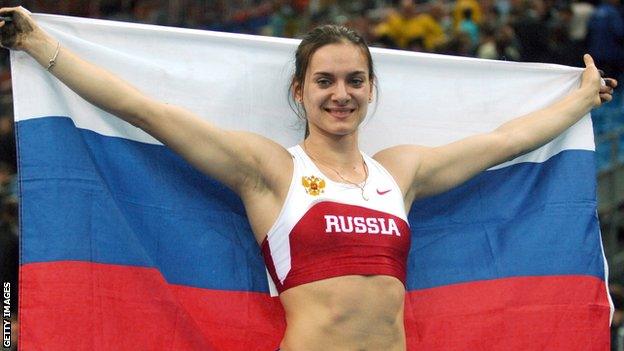
Yelena Isinbayeva says innocent athletes will be punished if the ban remains in place
Russia's athletes should stay banned from international competition and not be allowed to take part in the Rio Games, says a leading Olympic official.
International Olympic Committee (IOC) vice-president John Coates has also branded Russia's anti-doping agency and athletics body as "rotten to the core".
Russia was suspended following accusations of state-sponsored doping.
The International Association of Athletics Federations (IAAF) meets on Friday to discuss lifting the ban.
Russia was suspended from all track and field by the IAAF in November after an independent report from the World Anti-Doping Agency (Wada) depicted a culture of widespread state-sponsored cheating by Russia's athletes, with even the secret services involved.
The country's sports minister Vitaly Mutko has since apologised for cheating athletes not caught by Russia's anti-doping systems but stopped short of admitting the scandal had been state sponsored.
A task force has been studying the Russian reforms, but a fresh Wada report, issued on Wednesday, made more damaging claims.
It said that Russian athletes have continued to fail drug tests in large numbers and that doping control officers have been stopped from carrying out their work.
Mutko has written directly to IAAF president Lord Sebastian Coe, urging him to lift the ban on Russian athletes.
"Russia fully supports fighting doping," said Mutko. "However, we firmly believe that clean athletes should not be punished for the actions of others.
"Russia is doing everything possible to ensure our athletes are a part of clean and fair Olympic Games.
"In light of our efforts, I urge you to reconsider the ban on our athletes."
What reforms has Russia implemented?
According to Mukto, Russia has been reforming its anti-doping program since it was banned in November 2015.
It says it has:
Introduced independent testing
Introduced additional testing
Overhauled the Russian Anti-Doping Agency
Overhauled the Russian Athletics Federation
Introduced stricter rules for doping
Introduced lessons on anti-doping in schools
Mutko insists Russia "has done everything that IAAF" has asked it to do in order to be "reinstated to athletic competition" and has hinted his country could take legal action if its athletics federation is not reinstated.
Russia says it is being unfairly victimised, claiming other countries have fallen foul of the Wada code, such as Kenya and Ethiopia, but are free to compete.
Will the reforms convince the IAAF?
The latest Wada report also detailed the lengths Russian athletes allegedly went to both to avoid tests and fool doping control officers, who were also allegedly being threatened by security services.
Wada highlighted the case of an athlete who, it says, used a container - "presumably containing clean urine" - that had been inserted inside her, which then leaked.
It is clear a number of key sporting officials have yet to be convinced by Russia's desire to reform, among them Coates.
He made his critical comments while attending a medal ceremony in Melbourne on Friday for Australian race walker Jared Tallent.
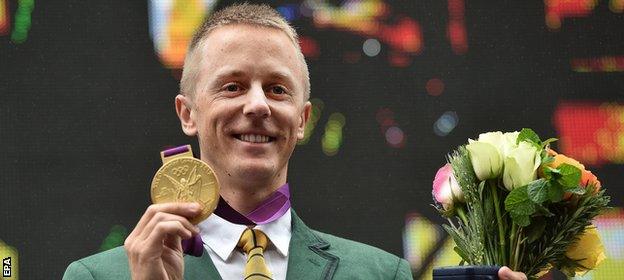
Tallent: “It’s a victory for clean sport and justice has been served.”
Tallent received the 50km walk gold medal from the 2012 Olympics a few months after drug cheat Russian Sergey Kirdyapkin was stripped of his title.
"Presenting an Olympic medal is always an honour, but more so on this occasion to be part of rectifying, in some way, the massive injustice perpetrated on Jared by a doping cheat and aided by a Russian Anti-Doping Agency and Russian Athletics Federation that were rotten to the core," said Coates.
"I expect that the IAAF will maintain the sanction against Russian athletics."
Canada's athletics federation has also backed a continuing ban of Russian track and field athletes.
"Athletics Canada feels strongly there is little evidence of a reversal in a systematic and deep rooted doping culture in Russian Athletics," said chief executive Rob Guy. "Therefore, there is no justification to grant re-inclusion."
Could Russian athletes still be at Rio?
If the ban remains in place, the IOC could still decide to allow Russian athletes to compete at the Rio Olympics, which begin on 5 August.
IOC officials gather in Lausanne on Tuesday to discuss the matter, with some concerned that a suspension will punish innocent athletes.
Russian pole vaulter Yelena Isinbayeva has already written an open letter to the IAAF making that very point.
"If some Russian athletes have failed doping tests, why must Russia's clean athletes face a ban?" she wrote.
"Why shouldn't we be able to compete in Rio against the clean athletes from other countries in Rio?"
British world marathon record holder Paula Radcliffe recognises that view but has urged the IAAF to take a tough stand.
"No-one wants to see even one innocent athlete suffer in this," she said.
"But such blatant disregard for the rules of our sport and the concept of fair play should receive a strong message that it will not be tolerated."
- Published17 June 2016
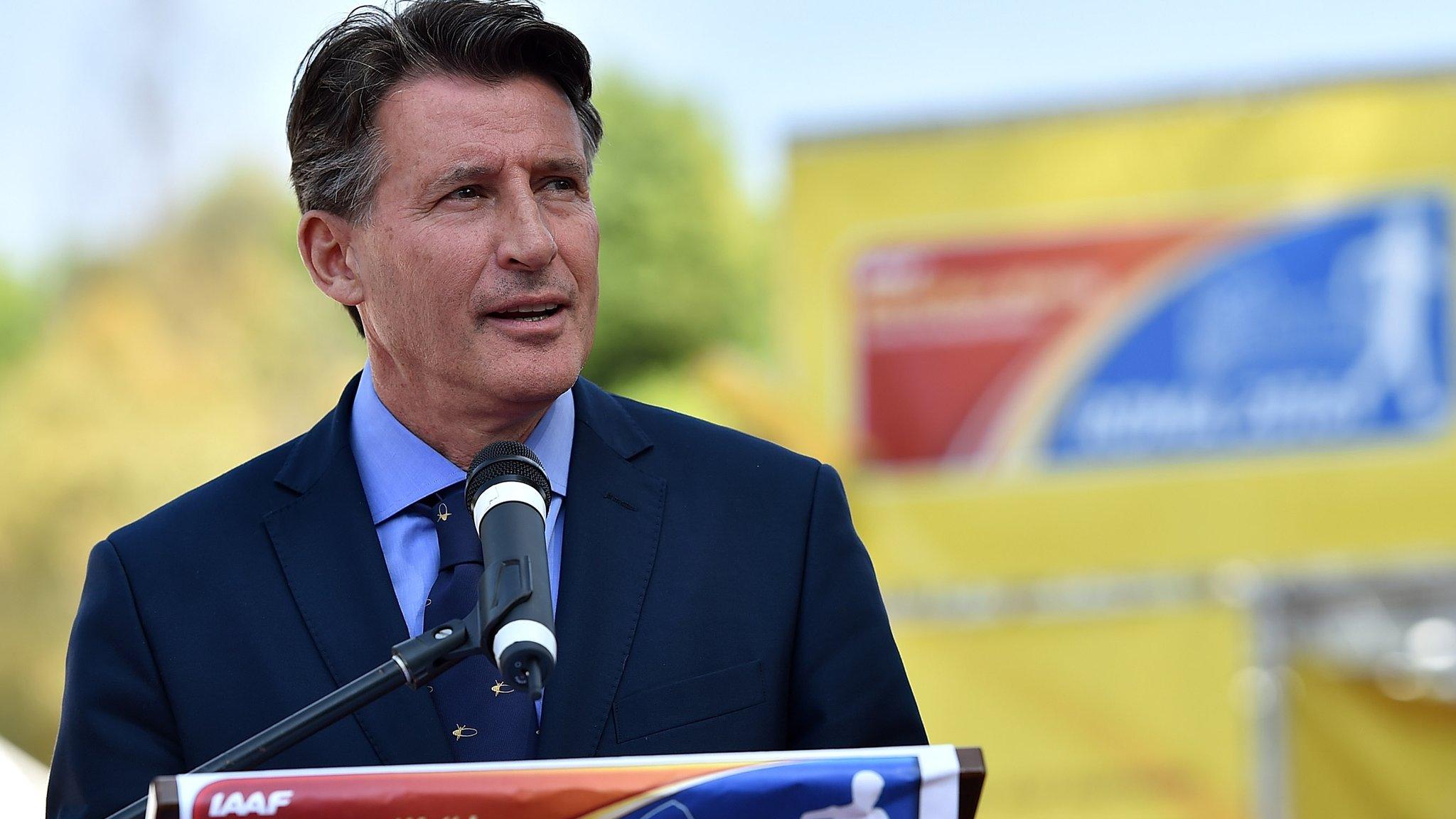
- Published16 June 2016
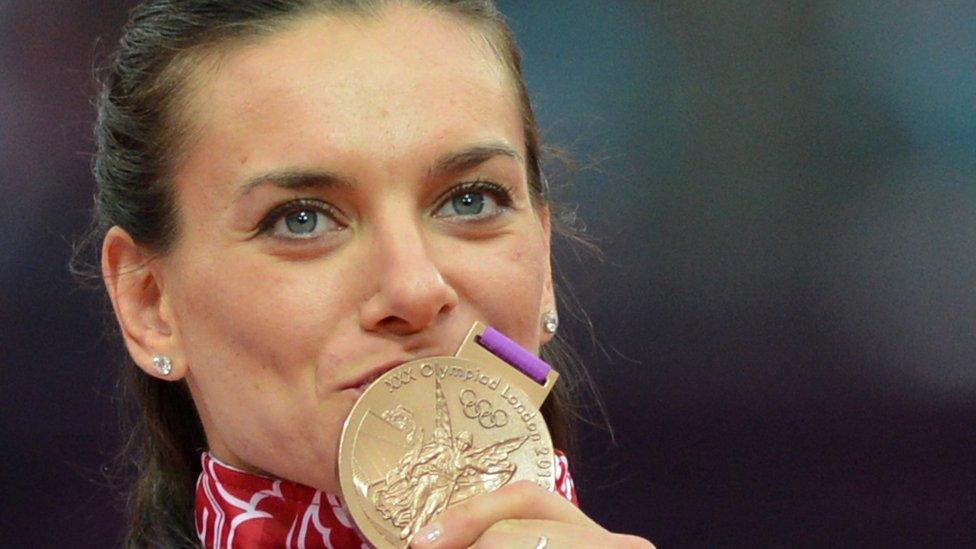
- Published16 June 2016
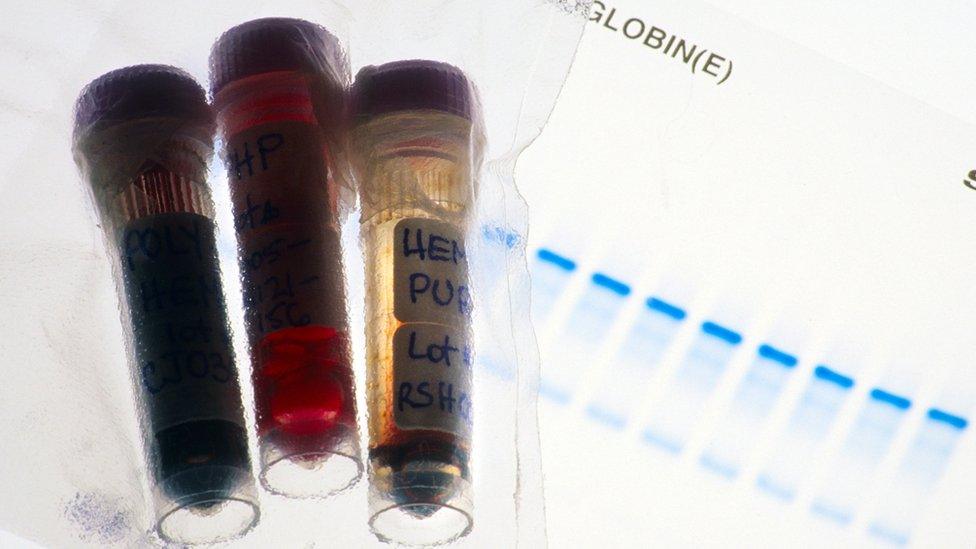
- Published26 November 2015
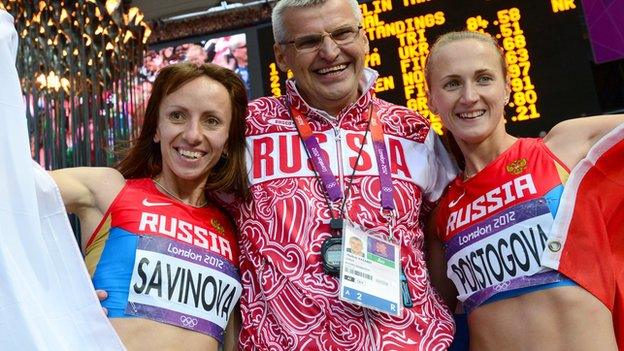
- Published9 June 2016
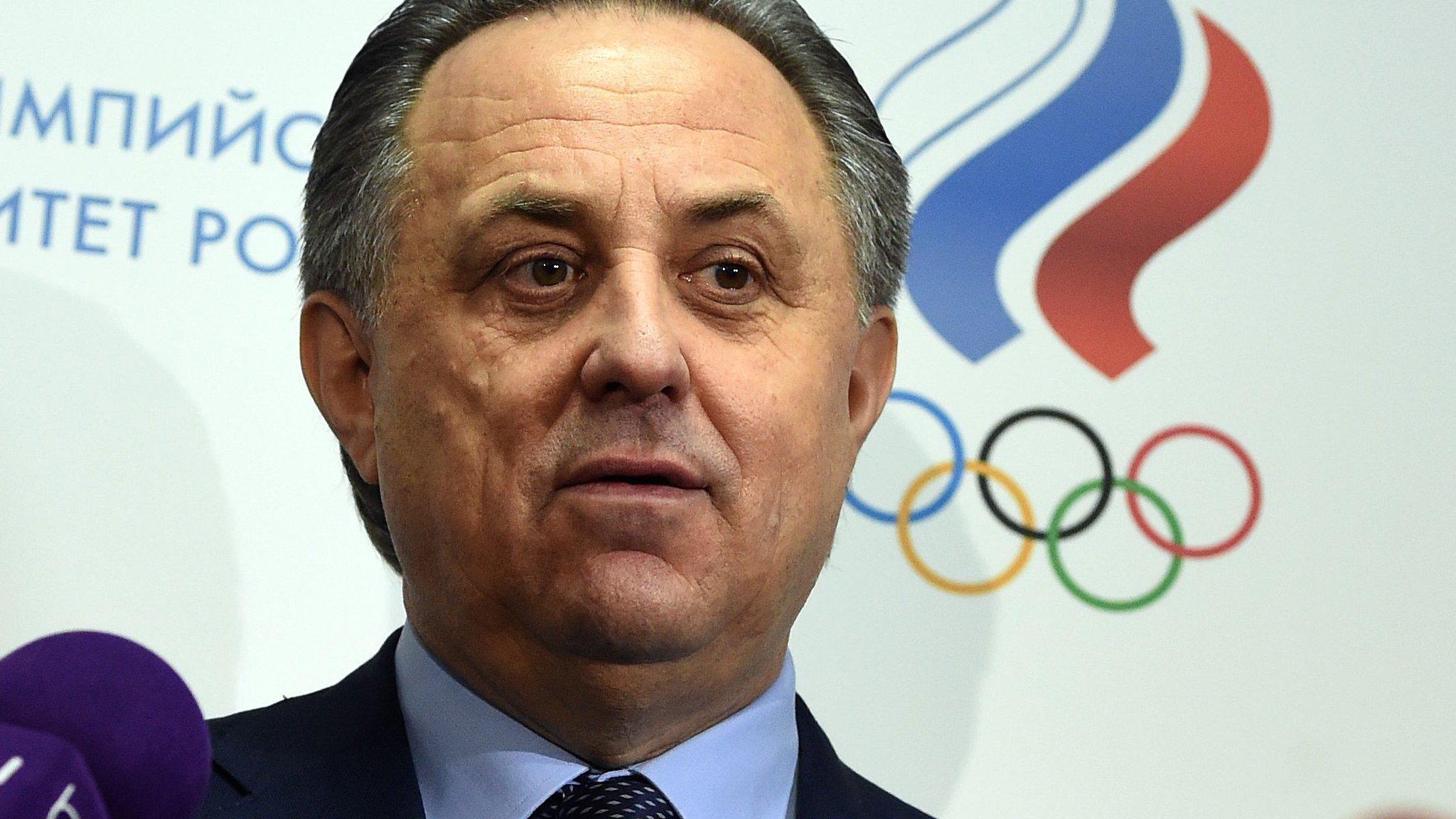
- Published3 March 2018
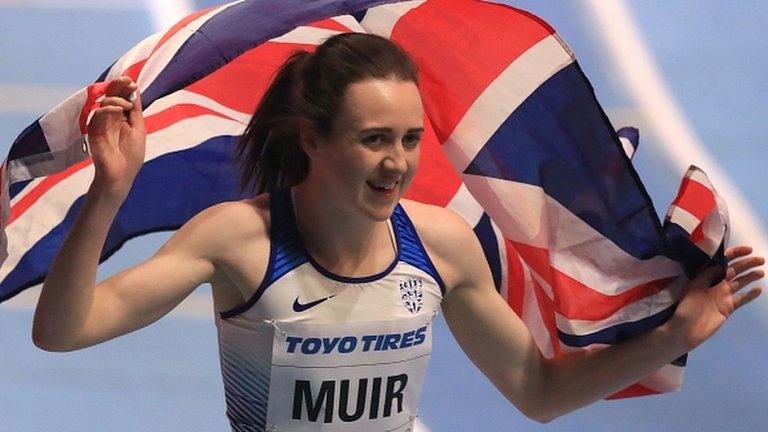
- Published8 February 2019
